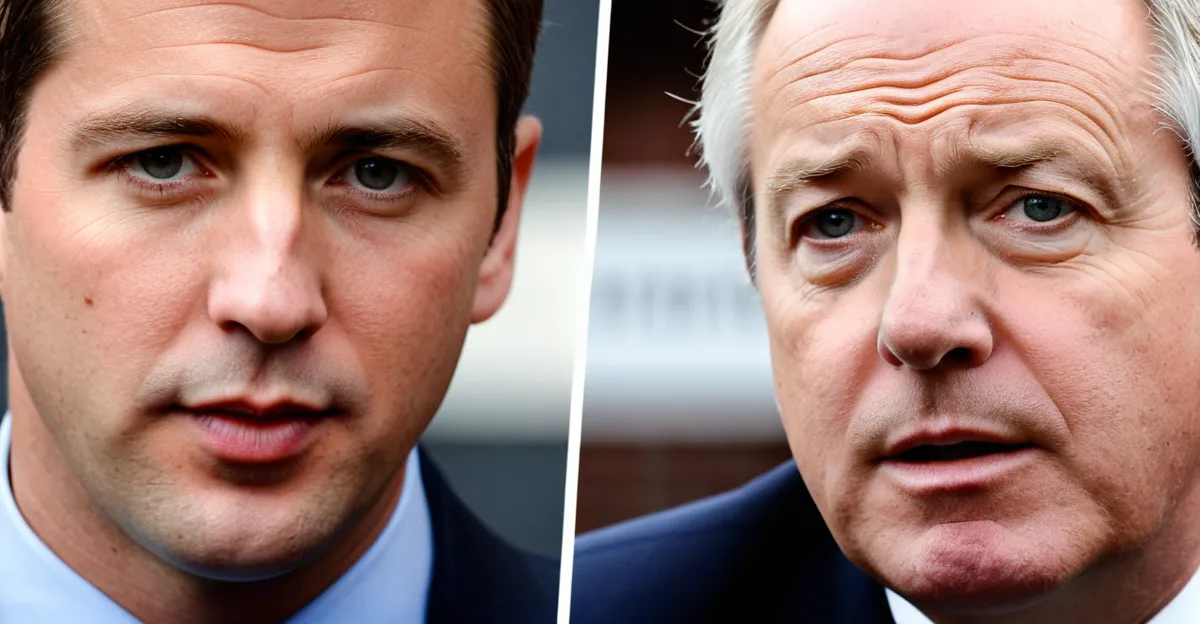Navigating the Complexities: Challenges of Reporting on UK Politics in a Polarized Society
In the modern era, reporting on politics, especially in a country like the UK, has become a daunting task. The increasing polarization of society, fueled by social media, partisan divides, and shifting public attitudes, presents a myriad of challenges for journalists and news outlets. Here, we delve into the intricacies of this issue, exploring the key challenges and offering insights into how these can be navigated.
The Impact of Polarization on Political Reporting
Polarization, or the process by which people become more extreme in their views, is a significant obstacle for journalists. This phenomenon is not unique to the UK but is particularly pronounced in the post-Brexit era.
In the same genre : How is the UK enhancing public transportation systems?
Affective Polarization and Its Consequences
Affective polarization, a term coined in political science, refers to the intense dislike or distrust between supporters of different political parties. This can lead to a highly charged and divisive environment, making it difficult for journalists to maintain neutrality.
- Public Perception: When the public is highly polarized, they often view news through the lens of their existing biases. This can result in accusations of bias against journalists, even when they strive for objectivity.
- Selective Exposure: People tend to seek out news that confirms their existing beliefs, a phenomenon known as selective exposure. This creates echo chambers where individuals are less likely to be exposed to opposing viewpoints, further exacerbating polarization.
Example: Brexit Coverage
The Brexit debate is a prime example of how polarization can complicate reporting. Journalists faced criticism from both Remain and Leave supporters, with each side accusing the media of favoring the opposing view. This highlights the delicate balance journalists must strike to maintain credibility.
Also read : What are the ethical considerations for UK news outlets?
The Role of Social Media in Political Polarization
Social media has become a critical factor in the dissemination of news, but it also contributes significantly to the polarization of society.
Filter Bubbles and Echo Chambers
Social media platforms use algorithms to personalize content, creating filter bubbles that reinforce users’ existing beliefs. This can lead to the formation of echo chambers where people are only exposed to information that aligns with their views.
- Hate Speech and Misinformation: Social media also facilitates the spread of hate speech and misinformation, which can further polarize public opinion. Journalists must navigate these challenges to provide accurate and unbiased information.
- Media Use and Public Attitudes: Research has shown that the way people use social media can influence their social attitudes and political attitudes. For instance, studies have found that exposure to partisan content on social media can increase affective polarization.
Practical Advice for Journalists
To mitigate the effects of social media polarization, journalists can take several steps:
- Diverse Sources: Ensure that news stories include diverse sources to provide a balanced view.
- Fact-Checking: Rigorously fact-check information to combat misinformation.
- Engagement: Engage with the public on social media to address concerns and clarify misinformation.
The Challenge of Maintaining Neutrality
In a polarized society, maintaining neutrality is a significant challenge for journalists.
Partisan Criticism
Journalists often face criticism from both sides of the political spectrum, with each side accusing them of bias.
- Example: UK-EU Summit Coverage: During the recent UK-EU summit, journalists reporting on the talks faced scrutiny from both pro-Brexit and pro-EU groups. This underscores the need for meticulous reporting to avoid being seen as partisan[1].
Balancing Objectivity and Public Opinion
To maintain objectivity, journalists must balance their reporting with the need to reflect public opinion.
- Public Opinion Polls: Using public opinion polls can help journalists gauge the sentiment of the public without taking a partisan stance.
- Expert Analysis: Incorporating analysis from experts across the political spectrum can add depth and balance to reporting.
The Economic and Social Context
The economic and social context in which reporting occurs also plays a crucial role in the challenges faced by journalists.
Economic Pressures
Economic pressures, such as those faced by the UK economy post-Brexit, can influence the way news is reported.
- Example: Economic Forecasts: The International Monetary Fund’s (IMF) recent upgrade of the UK’s growth forecast highlights the economic complexities that journalists must navigate. Reporting on these forecasts requires a nuanced understanding of economic indicators and their implications[3].
Social Attitudes and Hate Speech
Social attitudes, particularly those related to hate speech, pose a significant challenge for journalists.
- Hate Speech Regulations: Journalists must be aware of and adhere to regulations regarding hate speech, ensuring that their reporting does not inadvertently perpetuate harmful content.
- Community Engagement: Engaging with local communities can help journalists understand and reflect the diverse social attitudes within society.
Navigating the News Media Landscape
The news media landscape itself is evolving, presenting both opportunities and challenges for journalists.
Online News and Fake News
The rise of online news has democratized the dissemination of information but also increased the spread of fake news.
- Fact-Checking Initiatives: Many news outlets have implemented fact-checking initiatives to combat misinformation. For example, collaborative efforts between media organizations and fact-checking bodies can help verify the accuracy of news stories.
- Public Education: Educating the public on how to identify fake news is crucial. Journalists can play a role in this by providing guides and resources on media literacy.
Table: Comparing Traditional and Online News Consumption
| Aspect | Traditional News | Online News |
|---|---|---|
| Reach | Limited to print or broadcast audiences | Global reach through social media and online platforms |
| Speed | Often delayed due to print or broadcast schedules | Real-time updates and breaking news |
| Interactivity | Limited interaction with readers/viewers | High interactivity through comments, social media sharing |
| Bias | Can be subject to editorial bias | More prone to algorithmic bias and filter bubbles |
| Verification | Generally more rigorous fact-checking | Requires additional fact-checking due to the ease of misinformation spread |
Reporting on UK politics in a polarized society is a complex and multifaceted challenge. Here are some key takeaways and future directions:
Key Takeaways
- Diverse Sources: Ensure diverse sources to maintain balance.
- Fact-Checking: Rigorously fact-check information.
- Engagement: Engage with the public to address concerns.
- Economic and Social Context: Understand the economic and social context in which reporting occurs.
- Media Literacy: Educate the public on media literacy to combat misinformation.
Future Directions
- Collaborative Efforts: Collaborate with other media organizations and fact-checking bodies to enhance the credibility of reporting.
- Innovative Reporting: Use innovative reporting techniques, such as data journalism and interactive storytelling, to engage the public and provide deeper insights.
- Research and Analysis: Continuously conduct research and analysis to understand the evolving landscape of political polarization and its impact on reporting.
In conclusion, reporting on UK politics in a polarized society requires a deep understanding of the complexities involved. By maintaining objectivity, engaging with diverse sources, and educating the public, journalists can navigate these challenges and provide high-quality, informative reporting that serves the public interest.








